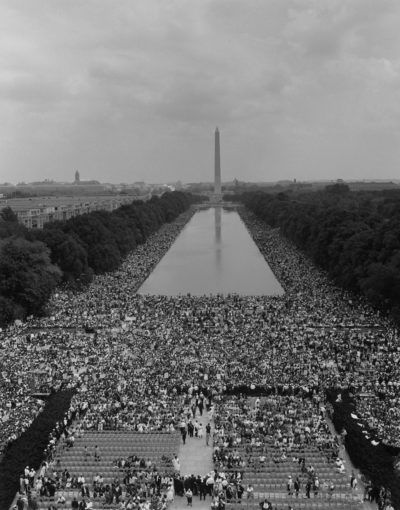August 28th will forever be a day that goes down in history as one of the most memorable for African Americans. 57 years ago, this date marked the day that the Reverend Dr. Martin Luther King, Jr. delivered his iconic” I Have a Dream Speech.” In the nation’s capital, on the steps of the Lincoln Memorial, hundreds of thousands of people peacefully gathered to protest for an end to racial segregation and discrimination against African Americans.
While this speech was written and delivered nearly 60 years ago, the concepts and the content of his words still ring true today. In the wake of recent acts of police brutality against black people, it seems as though history is repeating itself, and the world needs to take a moment to reflect on Dr. Martin Luther King’s wise words.
 This sweltering summer of the Negro’s legitimate discontent will not pass until there is an invigorating autumn of freedom and equality. Nineteen sixty-three is not an end but a beginning. And those who hope that the Negro needed to blow off steam and will now be content will have a rude awakening if the nation returns to business as usual. There will be neither rest nor tranquility in America until the Negro is granted his citizenship rights. The whirlwinds of revolt will continue to shake the foundations of our nation until the bright day of justice emerges.
This sweltering summer of the Negro’s legitimate discontent will not pass until there is an invigorating autumn of freedom and equality. Nineteen sixty-three is not an end but a beginning. And those who hope that the Negro needed to blow off steam and will now be content will have a rude awakening if the nation returns to business as usual. There will be neither rest nor tranquility in America until the Negro is granted his citizenship rights. The whirlwinds of revolt will continue to shake the foundations of our nation until the bright day of justice emerges.
As the speech continues, Martin Luther King transitions into anaphora by repeating the famous line I have a dream. Each time he states this, he reveals a hopeful outcry of an expectation for equality in the land of the free and the home of the brave for men and women of color. The fact that he reiterates I have a dream underscored the urgency for a call to action for blacks and whites to begin cultivating change. As his iconic words continue, he repeats the words,” with this faith.”
I believe the faith he is referring to is that of biblical faith. The faith is the substance of things hoped for and the evidence of things unseen. It believes that promises will be fulfilled without seeing things materialize while taking appropriate action and revealing necessary truths about black people’s value in America. This line’s repetition also implies a continuous desire and call to action to implement voting rights, fair housing, equity in education, and not being persecuted for the hue of one’s skin. These, amongst other civil liberties, are what Dr. Martin Luther King dreamt of then, and honestly speaking, these are the things African Americans dream of now.
As this day is not officially recognized on the calendar as a holiday or in some instances, not acknowledged at all, I believe homage should be paid to Dr. King, this speech and the March on Washington on this day moving forward in some way. Yes, we recite and listen to the speech in January on King Holiday and make children of all ages and races study excerpts of it during Black History Month, but this is not enough.
It is not enough to merely read these profound words, but it is a must that we delve into the meaning of each line, learn about the occasion, and the reasons for the March now more than ever. So before the third Monday in January or Black History Month approaches, take a moment to read and acknowledge this speech; and when you do, don’t be alarmed at the reflection of 1963 America you see in America 2020 because it seems as though the nation is continuing business as usual.
Liz Lampkin is a Lifestyle, Love, and relationship writer. Follow her on social media @Liz_Lampkin.